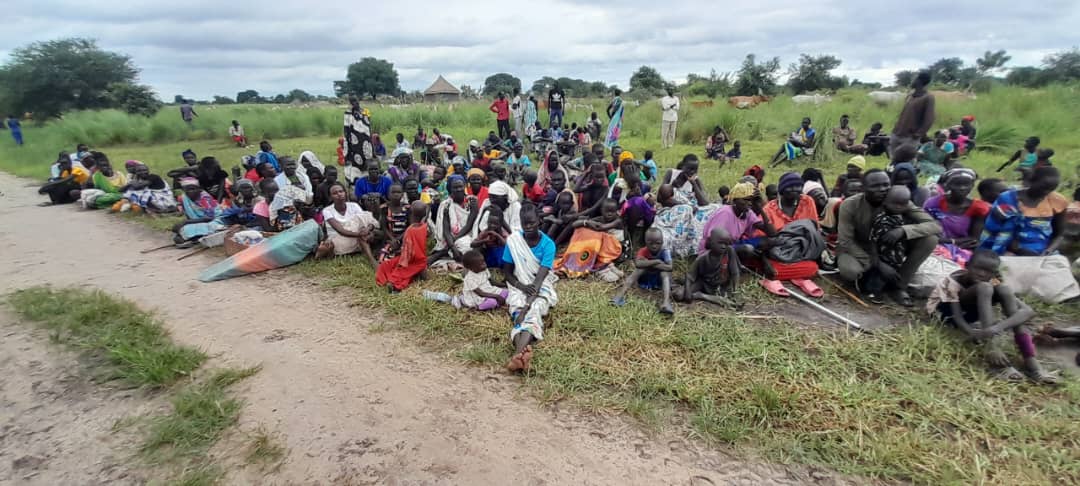Copyright eyeradio

Pigi displaced persons seek sanctuary in Ayod|Courtesy The United Nations has sounded the alarm over a worsening food and nutrition crisis in South Sudan — with millions facing hunger and more than two million children at risk of acute malnutrition during 2026 lean season, unless urgent action is taken. A new report released by the Integrated Food Security Phase Classification, or IPC, reveals that more than half of South Sudan’s population — about 7.5 million people — will experience acute food insecurity during the 2026 lean season, from April to July. The report further indicates that over two million children are at risk of acute malnutrition during the same period, with 28,000 people in Luakpiny/Nasir and Fangak counties already facing catastrophic hunger — the highest level on the IPC scale. Parts of Luakpiny/Nasir County are now at risk of famine if conflict, flooding, and disease outbreaks continue unabated. According to the IPC findings, between July 2025 and June 2026, an estimated 2.11 million children under five are expected to suffer from acute malnutrition and require urgent treatment, alongside 1.15 million pregnant and breastfeeding women who are also projected to be malnourished. About 70 percent of these cases are concentrated in five states — Jonglei, Northern Bahr el Ghazal, Upper Nile, Unity, and Warrap. The situation is projected to worsen in 46 counties during the harvest and post-harvest period from October 2025 to March 2026, with 20 counties likely to slip into higher alert phases. Of particular concern are Duk in Jonglei State; Rubkona in Unity State; Baliet/Akoka, Ulang, and Nasir in Upper Nile State; and the Abyei Administrative Area, which could all reach IPC Acute Malnutrition Phase 5 – Extremely Critical levels by mid-2026. These areas are experiencing restricted access to nutrition and health services due to ongoing conflict, a worsening cholera outbreak, and widening food gaps. FAO Representative Meshack Malo said the crisis is largely driven by disrupted farming and instability. The World Food Programme’s Country Director, Mary-Ellen McGroarty, described the situation as alarming but noted that progress is possible where peace holds. She said:“In counties where stability has returned, people have started to recover. But we must sustain this progress to ensure lasting change.” Meanwhile, UNICEF Representative Noala Skinner expressed grave concern for the country’s youngest and most vulnerable. She said these children are not to blame for the conflict and displacement, adding that safe access to health and nutrition services is both critical and urgent. The UN agencies are urging for immediate and sustained humanitarian support, warning that the window for action is rapidly closing as the lean season approaches.



